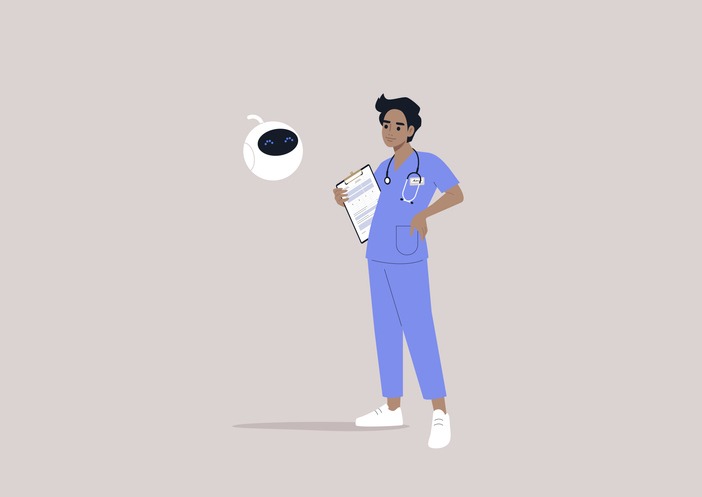
With recruitment and retention a top priority for many practices, it’s vital that practice managers embrace technological solutions
CREDIT: This is an edited version of an article that originally appeared on Healthcare Leader News
The commemoration of the NHS’s 75th anniversary was overshadowed by the pressing challenges currently confronting the UK healthcare system. A recent Deloitte study underlines that discontentment in their roles is prompting a significant portion of doctors (35%) and nurses (50%) to contemplate leaving their professions.
This highlights the urgent need to adopt solutions that bolster the healthcare workforce, enhance efficiency, and advocate for preventative health strategies to alleviate demand. In this context, the integration of AI technology presents an opportunity to fortify a resilient healthcare system that can sustain the NHS for another 75 years.
However, the hurdles of accessing and sharing data, coupled with skills shortages and insufficient investment in digital capabilities and infrastructure, impede the seamless integration and adoption of technologies like AI. The UK government must provide clarity on which applications and processes can offer immediate and long-term assistance to the NHS, offering practical guidance to healthcare professionals that positively influences their work and patient care.
Leveraging AI to Enhance Healthcare:
Streamlining Administrative Tasks
Implementing AI in administrative tasks, such as patient triaging, can revolutionise patient management. Algorithms can analyse symptoms and prioritise cases based on urgency, optimizing GP schedules, appointment management, and patient care. Automated clinical documentation can also alleviate administrative burdens on GPs, freeing them to focus on personalised care and patient relationships.
Improving Patient Data
AI can play a pivotal role in a future where patient data is seamlessly interconnected across the NHS and care system. To harness AI’s potential, data must be FAIR—findable, accessible, interoperable, and reusable.
This approach ensures comprehensive patient medical histories, enabling GPs to deliver quicker, more precise care and personalised solutions.
Alleviating NHS Pressures
Integrating AI, data, and digital technologies will elevate GPs’ diagnostic capabilities, streamline administrative duties, provide personalised care, and contribute to proactive population health management. This shift toward a proactive health model will build a more resilient NHS for the future, enhancing healthy life expectancy, reducing health inequalities, and ultimately enhancing societal and economic resilience.
In conclusion, embracing AI and technology in healthcare offers a transformative path forward. By fostering adaptability, embracing innovation, and harnessing AI’s capabilities, the healthcare system can navigate challenges, provide efficient care, and ensure a more resilient NHS for generations to come.


Be the first to comment